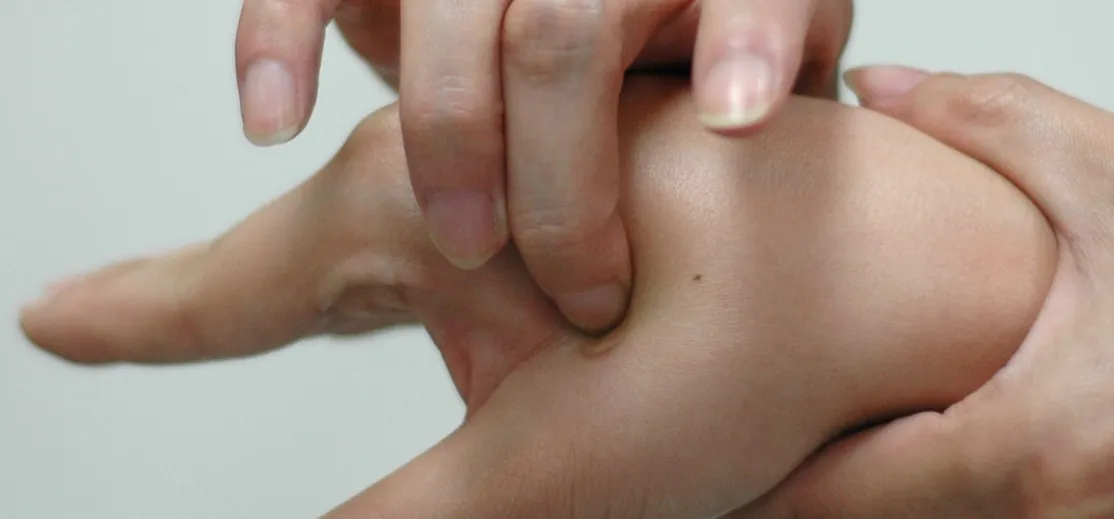Climbing into bed and shutting your eyes each night is heavenly—but waking up the next morning isn't. We all hate dragging ourselves out of the comfort of sleep and into the groggy, exhausting work day. Yet starting your day doesn't have to be awful if you know how to hack your sleep cycles and get the most out of your shut-eye.
#1. Skip a Few Meals to Reset Your Sleep Cycle
Vacationing in a different time zone is exciting, but it's also exhausting. Whether you're traveling three hours ahead of your usual schedule, or 12 hours, the time difference typically hits hard by screwing with your body's internal clock, making you exhausted at odd hours.
Don't let jet lag get the best of you. It's easy to adjust to a new sleep schedule if you skip a few meals. According to a study conducted by Clifford Saper at Harvard Medical School, not eating for a 12- to 16-hour period will help you reset your body's sleep-wake cycle—fast.
Though our bodies know when to sleep and when to wake based on sunlight, there's another internal clock at play within us: our food clock. When we get hungry, our body keeps up awake in an attempt to help us secure a snack. As soon as you begin eating again, your system will think it's sitting down to breakfast, no matter what time of day it is. Just one 12-hour period of skipping meals can override your current sleep-wake cycles.
So, if you need to hold off on sleep, simply stop eating 12 hours before your new desired wake-up time. The next time you're heading into a different time zone, figure out when you'll need to start waking up—jet lag won't occur as long as you skip meals for 12 to 16 hours leading up to that time.
#2. Swap Positions to Alter Your Dreams
Think dreams are beyond our control? Your favorite, comfiest sleeping position is actually dictating what you experience while grabbing some shut eye, so if you suffer through the same dreams every night, you might want to consider rolling over.
Dr. Mehmet Yucel Agargun discovered via his research that each sleep position leads to different dreams. Those who love to sleep on their left side typically experience a higher number of nightmares than right-side sleepers. Dr. Calvin Kai-Ching Yu, meanwhile, found recently that sleeping facedown on your stomach will cause exciting, possibly even erotic dreams.
Like a little variety in your dreams? Roll onto your back and sleep face up. This position might cause you to snore a little more, which could lead you to wake up more frequently in the middle of the night, but all that shifting in your sleep patterns will lead to unpredictable dreams. Back sleepers report having varied dreams that feature many different subjects and genres.
For more info, check out our guide on sleeping positions.
#3. Use Lucid Dreaming to Control Nighttime Dreams
You have even more control over your dreams if you're conscious of them while they take place. If you want to dictate what happens while you're out for the night, try lucid dreaming. This state occurs when you're body is deep in sleep paralysis, but your mind is awake and running free.
It isn't exactly easy to jump into lucid dreaming; it takes a bit of preparation. You can, however, train your brain to slip into a state of lucid dreaming more easily and frequently. Try keeping a dream journal in which you take note of everything you remember from the night's slumber.
Another trick is to force yourself to acknowledge when things are real and when they aren't. Do a few reality checks during your days—ask yourself if the scenes around you are truly happening. This practice helps you make reality checks in dreams a habit as well.
If you're interested in taking things even further, you can craft a pair of DIY lucid dreaming glasses that will help you keep reality and dreamland separate.
#4. Take the Perfect Nap
Who doesn't need a sleep break in the middle of the day? Learning to live without naps might sound difficult, but if you're a lengthy napper you might be harming your productivity, focus, and sleep schedule.
Australian researchers discovered that limiting nap time to 10 minutes is best. Though that might sound like a total waste of napping, those few minutes will reinvigorate your brain and keep you productive.
However, when you slip into sleep for longer periods in the middle of the day, the researchers point out that you'll feel groggy and even sleepier than before the nap. So, cut your hour-long naps down considerably, and you'll feel better than ever.
#5. Mix Caffeine & Naps for Greater Energy Boosts
Can't stand the thought of reducing your nap time? Before you take one, have a dose of caffeine, and you'll add to your nap's energy-boosting power.
According to Luise Reyner and James A. Horne, who conducted research on reducing drivers' sleepiness, drinking a cup of coffee before crashing on the couch is more effective than doing just one of the two. Hitting the caffeine right before trying to fall asleep might sound counterintuitive, but you're actually giving yourself a head start on those post-nap benefits.
A shot of espresso or your favorite latte takes around 15 minutes to fully kick in—so, if you take a quick catnap of about the same length, you'll wake up right as the energy-boosting compounds hit you. It might even make waking up more pleasant.
#6. Fall Asleep Faster
Going to sleep can be a task all in itself. If you struggle with insomnia, or just can't seem to shake off your energy in time for bed, try a different tactic.
If anxious thoughts keep your brain churning even after the lights are out, try turning on a sound machine with white noise. You can also use hypnosis to forget about your worries and lull yourself into a calming sleep.
Get sweaty when you sleep? Solve that problem and get to sleep faster by taking everything off and jumping into bed naked. Cooler temps are perfect for leading our brains and bodies to prepare for sleep. Taking a cold bath or shower, while goosebump-inducing, also has the same calming effect.
Finally, if you're a late-night snacker, keep up the habit! Just select the right foods, and you'll knock out in no time. Cheeses, including Parmesan and cheddar, pork chops, sunflower seeds, and potatoes are all foods that can get you snoring. If sweets are more your style, go ahead and try a chocolate bar before bed to enjoy the same effects.
#7. Sleep Easier with the Perfect Pillow
Finding the perfect pillow is key to enjoying the hours you spend asleep. While you might not be as picky as Goldilocks, selecting and setting your pillow properly can either lead to stiff necks or a refreshed mindset in the morning.
Forget shopping for a new, specially-designed pillow, though—you can fix the one that's already sitting on your bed. Just tilt the pillow backwards, at an angle, and pull the corners around your neck. This new, cuddly position will cradle your neck and support your spine, turning into an ergonomic wonder.
#8. Keep Yourself Awake on No Energy
Put down that cup of coffee: there are other ways to keep your eyes from closing when you're low on energy. If you're running out of steam and need to stay awake, get active—and that means staying away from filling, starchy meals. Get up and run around, or knock out a few jumping jacks every 30 minutes.
Keep the water coming, and try to get your blood circulating with a little acupressure. Even if your coworkers shoot you confused stares, moving around will do wonders for your exhausted body.
#9. Turn Two Hours into a Full Night of Sleep
We're all guilty of pulling all-nighters, whether we're college students or 9-to-5 business types. While skipping sleep usually leads to a rough morning filled with gallons of caffeine, there's a hack that can turn just two hours of sleep into a full day's worth of energy: the Uberman Sleep Schedule.
No, the Uberman Schedule won't turn you into a sleepless uber-human. It will, however, maximize the sleep you get, and allow you to have more time every day. Rather than snuggling with your pillow for eight hours each night, you subsist on naps alone.
On the Uberman Sleep Schedule, you swap a full night's sleep for six naps of 20-30 minutes each, taken every four hours throughout a 24-hour day.
During a typical night of sleep, our bodies enter the REM cycle—the time in which we get the most actual rest—for a mere 90 minutes. While the Uberman Sleep Schedule keeps you from entering REM sleep during the adjustment period, your brain eventually figures out that those quick naps are crucial. As a result, you'll begin entering the REM cycle as soon as your head hits the pillow—and two hours of nothing but REM sleep will make you feel better than a full night's 90 minutes.
It might sound like an exhausting schedule, but it both offers you bursts of energy and gives you more waking hours to get things done. Your body will take some time to adjust, and it won't be pleasant. But once you adapt to this new, limited sleep cycle, you'll be able to power through more than ever before.
#10. Wake Up Before Your Alarm Clock Ruins Everything
Hearing the shrill shrieks of any alarm clock is enough to send anyone into panic mode. There aren't many people who enjoy waking up with a blast of noise to their eardrums, and it turns out alarm clocks can ruin even the best night's sleep.
Rather than relying on your phone's ear-splitting ringtones to wake you each morning, research by Jan Born suggests that it's best to train your body to rise without a single sound. Our bodies are designed to wake us up painlessly, and our internal clocks are a more accurate measure of when we've had enough sleep. Within our brains lies a group of nerves that determine our circadian rhythm. This unseen clock tells us when it's time to call it a night, and when we need to crawl out of bed.
Much like any other clock, it runs on a repeated cycle each day. The more you stick to a set schedule, the better your circadian rhythm becomes at helping you both fall asleep and wake up. If you head to bed and wake up at the same time every day, your body adapts to the routine and adjusts your hormones as necessary. This automated adjustment increases your ability to rise on your own, easing you from deep sleep into a gradual wake up, and it means you successfully obtained enough sleep, whether or not you hit the eight-hour mark.
Waking up without the cries of an alarm clock helps you keep that internal clock running smoothly, and makes you less of a grump in the morning. By sticking to a schedule, no matter what day of the week it is, you'll wake up happier and easier.
Forget About That Snooze Button
Try out these sleep hacks, and your entire body will thank you. Not only will you achieve better sleep each time you close your eyes, but you'll make the most of those nighttime (or daytime) hours. And if you have a smartphone or tablet, make sure you're setting it to the right color levels while you're in bed to make sure it doesn't keep you up at night!
Cover image via William Finucane/Mad Science





































Comments
Be the first, drop a comment!